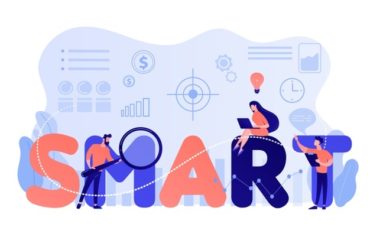
In our last few articles we have seen the importance and role of IEPs in the special education sector. The IEP series talks about the Constituents, SMART goal setting, Applications of IEPs and Our top picks for IEPs. However, IEPs are not the only types of education plans fostering inclusion in the academic setting.
We cannot stress on the importance of education for a child with special needs. The experience of a child’s initial experiences in their formative years of education can have a tremendous impact on their lives later on, helping them reshape their future.
Special Education Plans as Blueprints
For a child with special needs, it is extremely important to start early with making personalised plans for them. Children should collaboratively work with their parents, therapists and special educators in chalking out plans that help them to sail through their educational journey and have a smooth transition into adulthood.
Some of the common plans other than IEPs that are used and we strongly recommend using to secure your child’s developmental journey throughout school are:
- Individualized Family Service Plan (IFSP)
- Individualized Health Plan (IHP)
- Individualized Transition Plan (ITP)
Individualized Family Service Plan (IFSP)
An early intervention (EI) program which is not heard of commonly is an Individualized Family Service Plan or IFSP. As the child with special abilities needs support and guidance throughout their journey, so does the family.
Purpose of an IFSP
The goal is to help all caregivers and immediate family members plan smoothly for their future with the child so that the appropriate resources and help is provided right from the start. The IFSP is both a process and a plan and it starts by taking into account the child’s environmental factors, how it affects their development, family dynamics, social relationships with other families and their kids, resources available to them to help maintain a healthy environment.
Usually, the IFSP is made by a team of professionals which include the special education teachers, a psychologist, parents of the child, a legal representative of the family.
The following areas are the key focus for the IFSP for an all-round development of the child:
- Communication skills
- Home environment
- Availability of local therapy and service programs
- Physical and Developmental state
- Psychological functioning of the family
- Behavioural tests for the family as a whole
- Goal setting for the child
Click here to check out an example of an IFSP
Individualized Health Plan, or IHP
In Special Education, another kind of plan that is used is the Individualized Health Plan or IHP. As you must have guessed, this plan is used for a child with special needs at school if they have a pre-existing medical condition. Both physical and mental conditions are taken care of in the IHP. It usually entails the kind of medical needs a child has and how they should be treated.
Purpose of an IHP
IHPs are used to help the teachers, educators and staff at school support the children with medical conditions, providing them the right kind of medical aid, therapy and resources like every other child. The plans are kept confidential and are reviewed by the parents, educators and the administrative team in charge.
Since it is a special education plan, IHPs are personalised plans which are created by keeping the child’s best interests in mind. Each child is different and maybe one child with a specific medical condition might not need the same accommodations as another child.
An IHP should include:
- Child’s Personal Details: Name, Age, DOB
- Condition/Disorder Details
- Co-existing medical conditions, medications required
- Dietary Requirements
- Administration of medicine, support and care provided
- Emergency contact information: family, caregivers
- Family physician contact information
- Medical emergency plan- plan of action, whom to contact
- Date of when the plan was created and when it is next reviewed
Parents and educators have agreed that IHPs are necessary for achieving educational goals with the prime potential of the child, by keeping the health of the child as the primary focus, whether or not the child is eligible for other special education services.
Click here to check out an example of an IHP
Individualized Transition Plan, or ITP
When a child transitions from junior to senior school and then further onto life post high school-adulthood, an Individualized Transition Plan or ITP is usually laid out to help smoothen the process and bring about a disciplined regime.
Purpose of an ITP
ITPs are used to determine the resources and support needed for a child to coexist within the society independently. It allows students to set short and long term goals for themselves which include college, co-curricular activities, working or finding assisted living environments. SMART goal setting is usually followed to understand the person’s strengths and weaknesses and accordingly the plans are laid out.
The ITP is developed by the student’s IEP team when he or she is 14-16 years old and usually follows when he or she reaches 22-26 years old.
An ITP usually includes
- Solutions to challenges at school
- Services required during adulthood
- Services and support presented by family
- Goals and Interests of the student
- Social skills
- Future financial planning
- College prep planning
- Living arrangements once independent
All of these factors will help in charting the ITP and creating a roadmap for the child to help him or her reach their goals sufficiently with minimum obstacles.
Click here to check out an example of an ITP
These were the different types of Special Education Plans laid out for you. At Reservoir we highly recommend you to dive deeper into each one of them if needed for your child to reach their full potential, and get in touch with a therapist or a special educator at the earliest!




You must be logged in to post a comment.